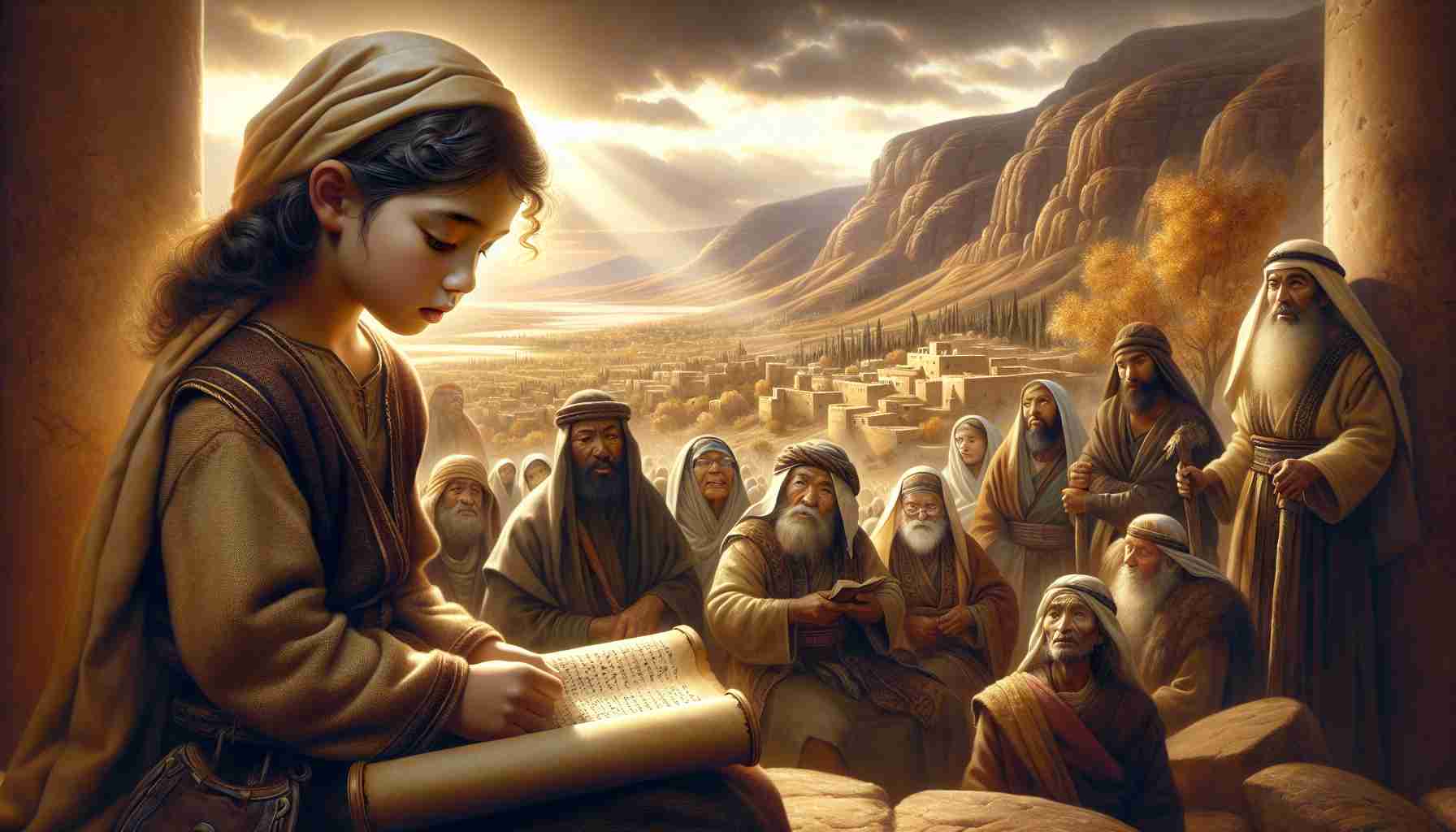

The day Jerusalem fell, I was standing on a ridge east of the city, ash dusting my sandals. My name is Mehir, son of a shepherd from the tribe of Benjamin. I wasn’t a priest or a soldier—just a man who’d seen too much smoke and betrayal to keep silent.
The Babylonians had broken through the defenses, and now the soldiers stormed the streets, torching homes and dragging families into the dust. But what broke me wasn’t the enemy with spears. It was our cousin Edom. They stood on the roads outside the city, the Edomites—descendants of Esau, brother of our father Jacob. Instead of helping us, instead of opening their gates to the women and children who fled the sword, they blocked the mountain passes. They captured those who escaped and handed them to the Babylonians.
I saw it with my own eyes. One boy—couldn’t have been older than nine—tried to sneak past them. An Edomite man yanked him to the ground by his tunic and laughed. When the Babylonian soldiers arrived, he turned him over without a word. That boy looked like my younger brother, and in that moment, something inside me cracked. I wanted to scream, to strike, to curse the mountain of Esau for every cruel smile carved into their faces—but I couldn’t move.
Weeks later, I found myself wandering the outer villages when I heard the prophet Obadiah speak. Obadiah—whose name means “Servant of God”—stood outside a gathering of weary survivors, his voice shaking the dry air like thunder.
“Because of the violence against your brother Jacob,” he declared, “shame will cover you, and you will be cut off forever.”
He spoke of Edom’s arrogance, how they trusted in the mountains for safety, how they believed no ruin could reach them. Obadiah prophesied that just as Jerusalem fell, Edom too would be brought low. Not one of their strongholds would be spared. God would bring justice.
As I listened, I didn’t feel revenge—but something else. I felt seen. All the pain, the betrayal bursting inside of me like fire—it wasn’t forgotten. God had witnessed what Edom did. He remembered the cries on the mountain roads. And He would act.
I turned away from the crowd that day with tears on my face—not for the loss alone, but for the comfort Obadiah’s words gave us. We were not abandoned. Even in our ruin, God’s justice remained near, as sure as the stones beneath our feet.
Years have passed since Jerusalem fell. The Temple—our holy place—still lies in ashes. But I hold Obadiah’s words close. I tell my children, when they ask where justice is, that it comes in God’s perfect time.
I still remember that ridge. I still remember the boy. But now I remember something greater: God saw. And God does not forget.
The day Jerusalem fell, I was standing on a ridge east of the city, ash dusting my sandals. My name is Mehir, son of a shepherd from the tribe of Benjamin. I wasn’t a priest or a soldier—just a man who’d seen too much smoke and betrayal to keep silent.
The Babylonians had broken through the defenses, and now the soldiers stormed the streets, torching homes and dragging families into the dust. But what broke me wasn’t the enemy with spears. It was our cousin Edom. They stood on the roads outside the city, the Edomites—descendants of Esau, brother of our father Jacob. Instead of helping us, instead of opening their gates to the women and children who fled the sword, they blocked the mountain passes. They captured those who escaped and handed them to the Babylonians.
I saw it with my own eyes. One boy—couldn’t have been older than nine—tried to sneak past them. An Edomite man yanked him to the ground by his tunic and laughed. When the Babylonian soldiers arrived, he turned him over without a word. That boy looked like my younger brother, and in that moment, something inside me cracked. I wanted to scream, to strike, to curse the mountain of Esau for every cruel smile carved into their faces—but I couldn’t move.
Weeks later, I found myself wandering the outer villages when I heard the prophet Obadiah speak. Obadiah—whose name means “Servant of God”—stood outside a gathering of weary survivors, his voice shaking the dry air like thunder.
“Because of the violence against your brother Jacob,” he declared, “shame will cover you, and you will be cut off forever.”
He spoke of Edom’s arrogance, how they trusted in the mountains for safety, how they believed no ruin could reach them. Obadiah prophesied that just as Jerusalem fell, Edom too would be brought low. Not one of their strongholds would be spared. God would bring justice.
As I listened, I didn’t feel revenge—but something else. I felt seen. All the pain, the betrayal bursting inside of me like fire—it wasn’t forgotten. God had witnessed what Edom did. He remembered the cries on the mountain roads. And He would act.
I turned away from the crowd that day with tears on my face—not for the loss alone, but for the comfort Obadiah’s words gave us. We were not abandoned. Even in our ruin, God’s justice remained near, as sure as the stones beneath our feet.
Years have passed since Jerusalem fell. The Temple—our holy place—still lies in ashes. But I hold Obadiah’s words close. I tell my children, when they ask where justice is, that it comes in God’s perfect time.
I still remember that ridge. I still remember the boy. But now I remember something greater: God saw. And God does not forget.